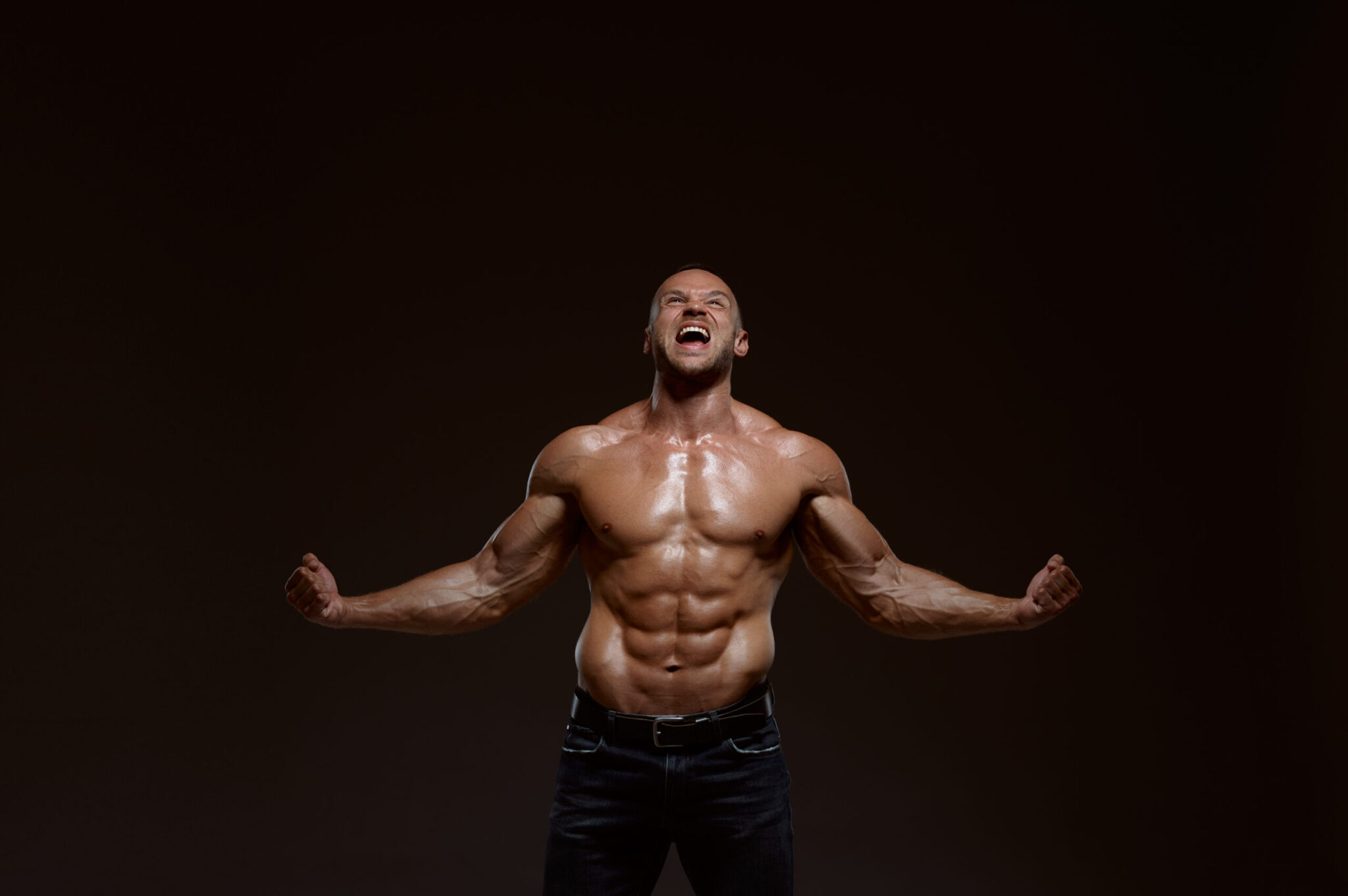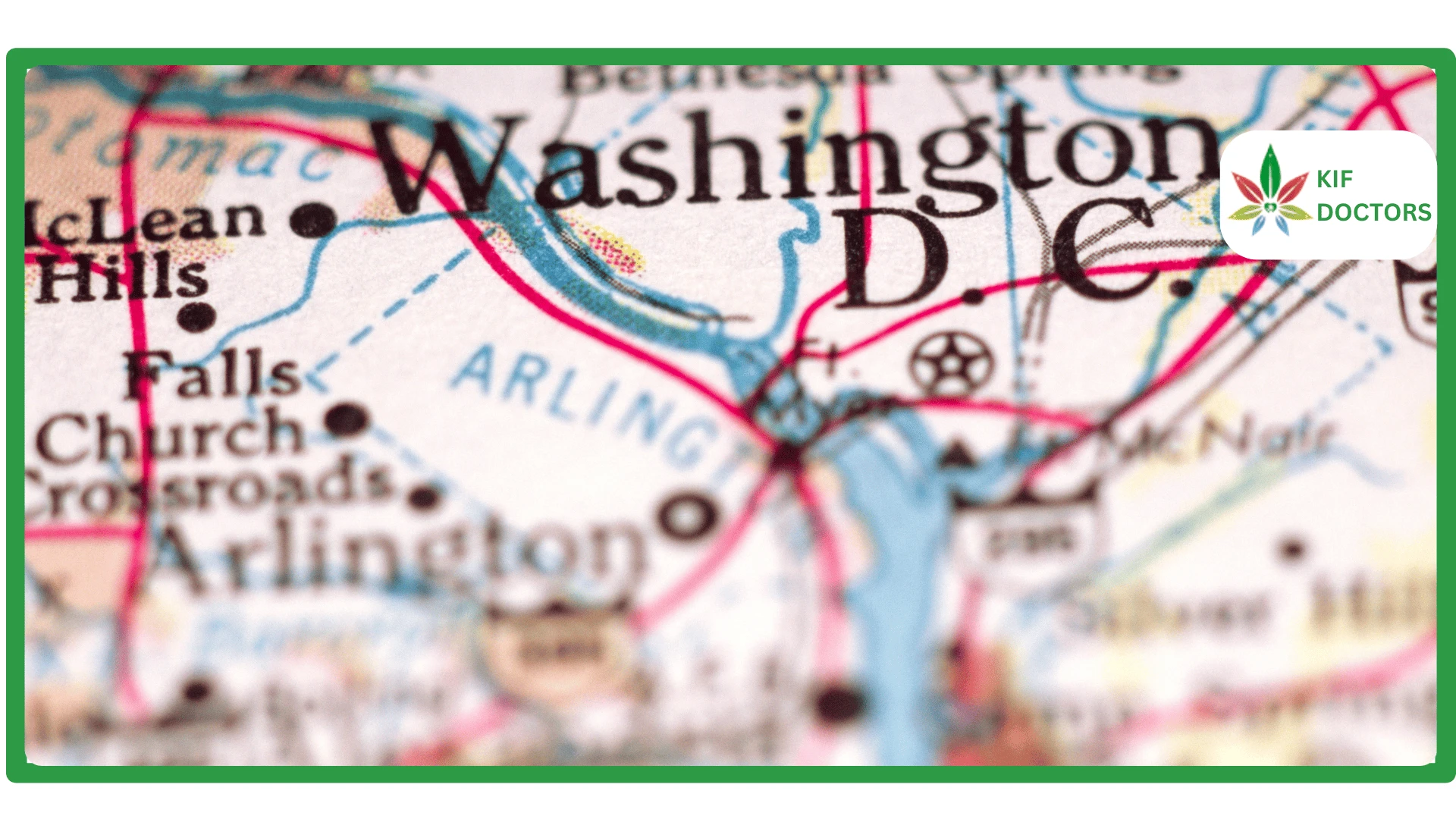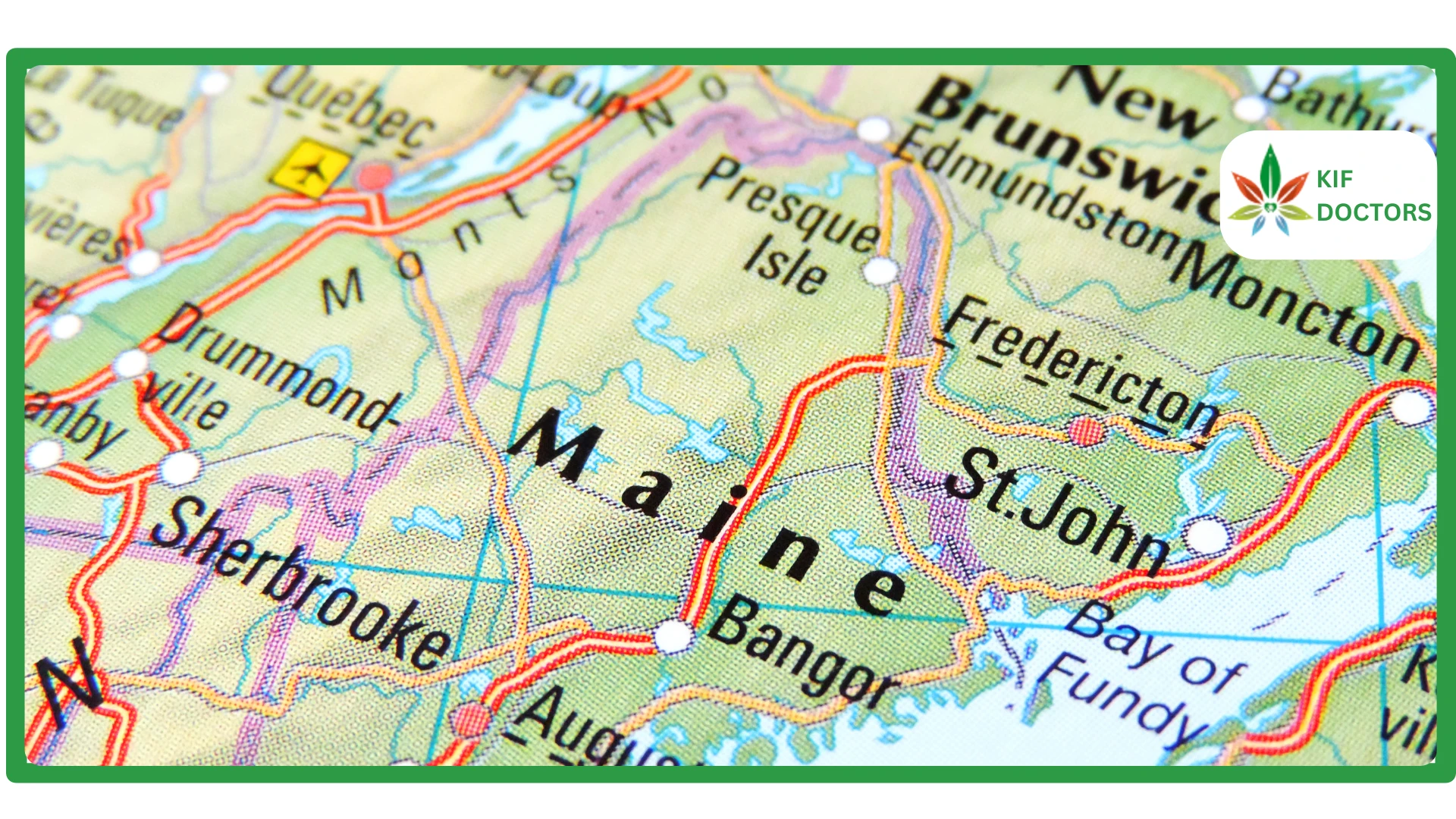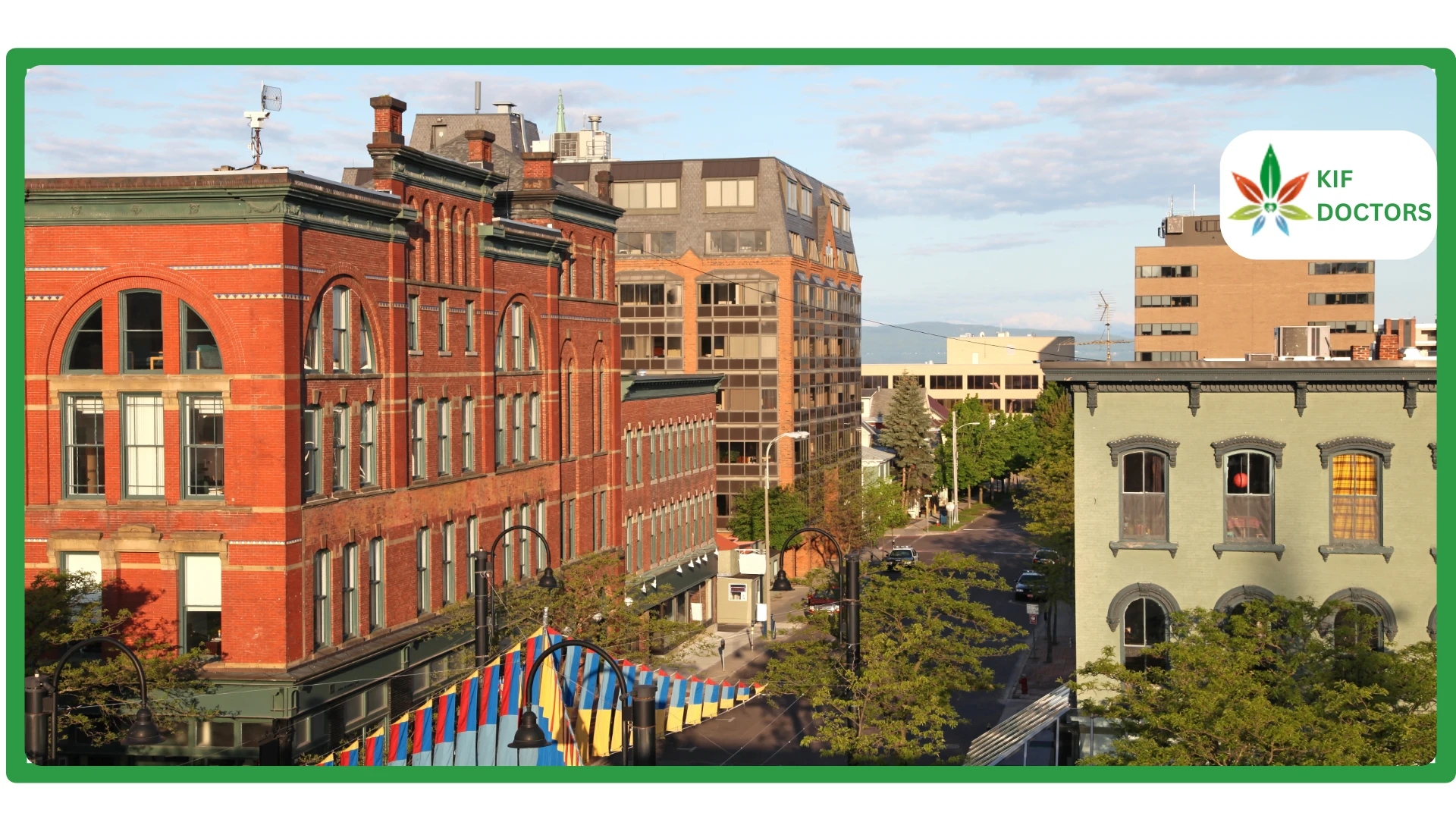Low testosterone, or Low T, is a legitimate medical condition that is usually experienced by a lot of men all over the world. Testosterone is a significant hormone. It boosts mood, muscles, overall wellness, sexual health and energy. Levels that fall too low begin to affect many aspects of health negatively.
In 2025, more men are becoming aware of how low testosterone levels impact their bodies. The good news is that low testosterone is testable and treatable. With adequate medical attention, men can restore their strength and energy and feel good again. This guide describes the symptoms of low testosterone, its diagnosis, and its various ways of treatment.
Don’t Wait, Reclaim Your Vitality – Click here to Book Your TRT Consultation Now!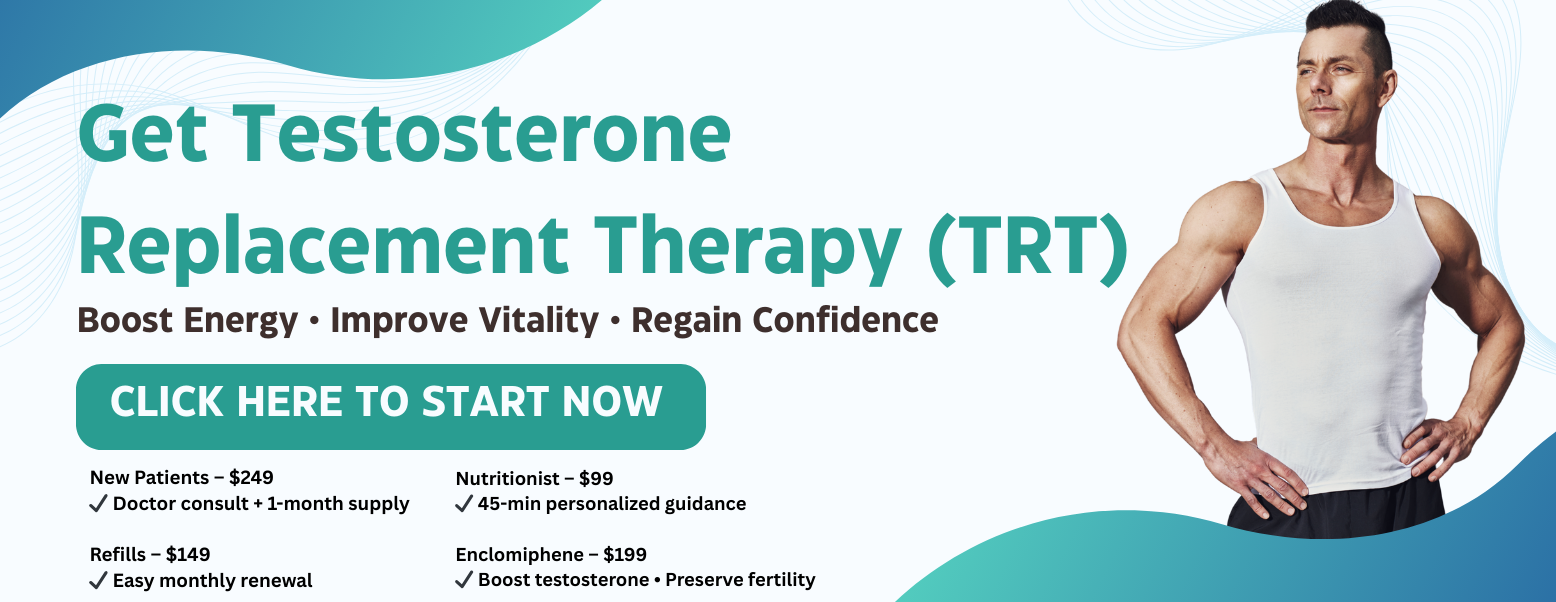
What Is Testosterone?
The central male hormone is testosterone. The testicles produce the majority, and the adrenal glands produce a little. Among the numerous ways in which testosterone helps the body are the following:
- Development Of Male Reproductive Tissues
- Sperm Production
- Muscle And Bone Strength
- Libido And Sexual Performance
- Mood Regulation And Mental Clarity
- Distribution Of Body Fat
- Red Blood Cell Production
Testosterone levels go down as men age. After age 30, levels usually drop about 1% every year. But in some men, the drop is faster or caused by health problems or poor habits.
Common Symptoms of Low Testosterone
Low testosterone affects different people in different ways. But the most common symptoms include:
-
Reduced Libido and Sexual Dysfunction
Men may notice they don’t feel interested in sex as much as before. Erections may become harder to get or keep. Morning erections may also happen less often.
-
Fatigue and Decreased Energy Levels
Feeling tired all the time is a big warning sign. Men with low testosterone are weak and exhausted despite getting enough sleep.
-
Loss of Muscle Mass and Increased Body Fat
Testosterone increases muscle mass and fat burning. At the lower levels, muscle strength is reduced and fat predominates in the stomach region.
-
Mood Changes and Mental Fog
Some men experience sadness, anxiety, or anger without an obvious cause. They can also be struggling to think and concentrate.
-
Decreased Bone Density
Severe deficiency in testosterone makes bones weak. This may result in thinning of bones and increased likelihood of breaking them.
-
Sleep Disturbances
Men can experience difficulties with falling or remaining asleep. Hormone problems are aggravated by poor sleep.
-
Reduced Testicle Size and Fertility Issues
Testicles may shrink. Sperm count may go down. These signs matter for men who want to have children.
Causes of Low Testosterone
There are a lot of reasons that may reduce testosterone levels. Being aware of the cause can enable doctors select the most effective treatment.
The doctor will inquire on the way you feel. You should discuss energy level, mood and sexual health without constraint.
Testosterone reaches the peak in the mornings. Total testosterone could be measured by blood tests.
- Aging (natural decline)
- Hypogonadism (primary or secondary)
- Chronic illnesses (diabetes, obesity, liver/kidney disease)
- Pituitary gland disorders
- Trauma or infection of the testes
- Anabolic steroid abuse
- Medications (especially opioids and chemotherapy drugs)
- Stress and poor lifestyle habits
- Environmental toxins and endocrine disruptors
How Is Low Testosterone Diagnosed?
To determine whether a person has low testosterone, doctors use the following procedure:
-
Symptom Evaluation
The doctor will enquire about the way you feel. You should discuss energy level, mood and sexual health without constraint.
-
Blood Testing
Testosterone reaches the peak in the mornings. Total testosterone can be determined through blood tests performed at the time. If it is below 300 ng/dL, it may mean low T.
Doctors may also check:
- Free testosterone
- Luteinizing hormone (LH)
- Follicle-stimulating hormone (FSH)
- Estradiol (E2)
- Prolactin
- SHBG (Sex Hormone Binding Globulin)
-
Additional Testing (if needed)
Doctors can prescribe additional tests. These may be an MRI, an ultrasound, semen tests, or bone scan.
Effective Treatment Options for Low Testosterone to Restore Hormonal Balance
Most treatment options are available in case you have low testosterone levels. The most suitable one will be based on your age, symptoms, health objectives, and lifestyle.
The primary treatment is as follows:
Testosterone Replacement Therapy (TRT): The Gold Standard in Hormonal Restoration
TRT is the substitution of missing testosterone with a synthetic compound. It helps to boost mood, energy, sex drive and muscle strength within a short period. Here are various types of TRT Available:
Intramuscular Injections (Testosterone Cypionate or Enanthate):
Injected once or twice a week. These shots go into large muscles like the thighs or glutes.
- Pros: Strong effects, easy to adjust dose
- Cons: Requires needles, may cause hormone swings
Topical Gels and Creams (AndroGel, Testim):
Rubbed daily on clean skin (shoulders, arms, or belly).
- Pros: Simple to use, avoids injections.
- Cons: Can transfer to others, may irritate skin, not always absorbed well
Transdermal Patches (e.g., Androderm):
Stuck to the skin daily.
- Pros: No needles
- Cons: May cause rashes, can fall off during sweating
Pellet Implants:
Placed under the skin by a doctor. They last 3–6 months.
- Pros: Long-lasting, no daily work
- Cons: Minor surgery, dose can't be adjusted easily
Oral Testosterone (Undecanoate):
Swallowed with food. Skips the liver and goes into the blood directly.
- Pros: Easy to take
- Cons: Expensive, still being studied long-term
TRT should be closely monitored. Doctors frequently check blood tests and symptoms to ensure that treatment is safe.
Fertility-Preserving Therapies
TRT can reduce the number of sperm, and hence it is not suitable to men who desire to have children. There are medicines that increase testosterone, but they do not interfere with fertility.
Clomiphene Citrate (Clomid):
Boosts hormones from the brain that tell the body to make more testosterone and sperm.
- Pros: Taken by mouth, it keeps fertility
- Cons: May take time to show results, not officially approved for men
Human Chorionic Gonadotropin (hCG):
Acts like LH and helps the testicles produce testosterone and sperm.
- Pros: Keeps testicle size, works with TRT or Clomid
- Cons: Needs regular injections, more expensive
Aromatase Inhibitors (e.g., Anastrozole):
Used if estrogen is too high. Lowering estrogen may raise testosterone.
- Pros: Helps avoid breast tissue growth
- Cons: Can drop estrogen too low if overused
Lifestyle Changes to Naturally Boost Testosterone
Healthy habits support hormone balance. In mild cases, they can restore testosterone without medication.
Exercise (Especially Resistance Training and HIIT):
- Lifting weights and short, intense workouts raise testosterone.
- Do 3 to 5 weekly workouts using squats, deadlifts, and bench presses.
Fat Loss and Muscle Gain:
Belly fat lowers testosterone. Losing fat can reverse that.
Balanced Nutrition:
- Eat more zinc, vitamin D, magnesium, and good fats.
- Avoid sugar, processed food, and alcohol.
- Eat real foods like eggs, fish, nuts, and leafy greens.
Stress Management:
- Too much stress raises cortisol. That lowers testosterone.
- Try meditation, journaling, or walking outside.
Quality Sleep:
- Testosterone is made during deep sleep.
- Aim for 7–9 hours of sound sleep each night.
Natural Supplements and Herbal Boosters
Supplements do not replace medical treatments, but they can help some men with mild low testosterone.
Popular Testosterone-Boosting Supplements:
- Ashwagandha: Lowers stress and may raise testosterone.
- Tongkat Ali (Longjack): Can help raise free testosterone.
- Fenugreek: May improve sex drive and hormone balance.
- DHEA (Dehydroepiandrosterone): A building block of testosterone; use only with doctor advice.
Important: Not all supplements are safe. Only buy ones tested by third parties, and talk to your doctor before using them.
Combination Therapy
Many men need more than one treatment to get the best results. If ferrets. If fertility matters or symptoms are strong, doctors may mix treatments.
- TRT + hCG: Raises testosterone and keeps sperm production and testicle size.
- TRT + Anastrozole: Controls estrogen buildup.
- Clomid + Supplements: Helps raise testosterone without using TRT.
Hormone doctors at The KIF create plans based on blood test results, health goals, and personal needs.
When To See A Specialist?
When you are constantly tired, cannot concentrate, and have difficulties with intimacy, it is probably time to speak to a specialist. At The KIF, men get full support, including:
- Hormone Testing And Review
- Trt With Support For Fertility
- Online Doctor Access
- Advice On Diet, Sleep, And Workouts
Conclusion
Low testosterone doesn't have to control your life. At The KIF, we help men bring back energy, focus, and confidence with expert hormone care.
We can assist you in case you are fed up with being weak or having low sex drive. Our doctors develop individual plans that are aligned to your body and goals.
Fast care, safe treatment, and ongoing support are just a click away. Book your Free Consultation and move toward better health. You deserve to feel strong, sharp, and ready for life again.
 Since 2021, Kif offers a streamlined platform to get a medical marijuana card online. We have served more than 45K patients across the United States. Sign Up Now to get the right to use medical cannabis for your health condition without any delay.
Since 2021, Kif offers a streamlined platform to get a medical marijuana card online. We have served more than 45K patients across the United States. Sign Up Now to get the right to use medical cannabis for your health condition without any delay.















